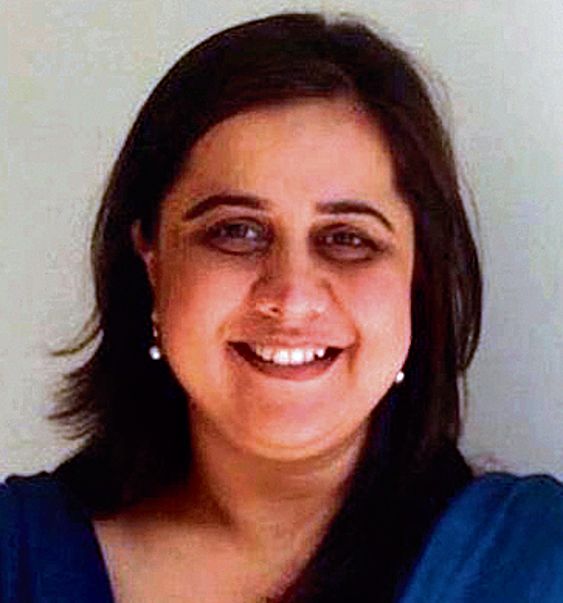India’s deft balancing act on foreign policy front
THE Narendra Modi government outlined two axioms of India’s foreign policy — ‘Bharat First’ and ‘Vasudhaiva Kutumbakam’ (the world is one family) — when it came to power in June this year. Its intention has been to maintain the momentum of the foreign policy initiatives that yielded success in the last decade. After the 2024 General Election, questions were raised about the government’s ability to steer decisions on foreign policy because of the lack of an absolute majority in the Lok Sabha. During the first 100 days of Modi 3.0, some crucial foreign policy initiatives were taken to address critical emerging challenges.
India’s national interests have been driving its relations with the major powers, and it is fair to say that it has managed to strike a balance between maintaining an autonomous position and creating friendships. Russia has remained a constant in India’s foreign policy (historically and amid the ongoing Russia-Ukraine war), reinforced by PM Modi’s visit to Moscow in July. New Delhi’s prime areas of interest in its relations with Russia continue to include defence, energy and the strategic domain.
New Delhi’s relations with Washington remain significant, given India’s most critical strategic challenge of China’s growing assertion on its border and Beijing’s expanding presence in neighbouring countries. India-US ties are likely to grow, irrespective of whether a Democrat or a Republican gets elected in the US. The existing trajectory of the partnership indicates expansion of cooperation in economic, strategic, technological and defence sectors.
The criticality of its neighbourhood for India was evident in the statement made by External Affairs Minister S Jaishankar at the Jasjit Singh Memorial lecture at the Centre for Air Power Studies in August: “What we have tried to do in the last 10 years is actually to economically bring our neighbours much closer… there will be political ups and downs… these are realities we have to accept... but…we today have more resources, more capabilities, we are geographically at the centre, our size is so much bigger… we need to drive the process, we will set the pace, and we will go the extra mile.” Undoubtedly, India’s neighbourhood policy needs a push. It cannot achieve the objective of becoming a $5-trillion economy without focusing on regional economic integration.
The heads of India’s neighbouring countries (except for Pakistan and Afghanistan) and heads of island nations in the Indian Ocean Region (IOR) were invited to PM Modi’s swearing-in ceremony. The External Affairs Minister’s visit to Male in August appositely conveyed India’s intentions that the Maldives remained an important partner of India in maintaining peace in the IOR.
In its relations with Pakistan, India remains firm on a strictly conditional dialogue. The two nations have had no diplomatic dialogue after the January 2016 terror attack on the Pathankot Air Force station by Pakistan-sponsored terror group Jaish-e-Mohammed that derailed the Modi government’s peace initiatives. Pakistan has often tried to highlight the reversal of the abrogation of Article 370 as a precondition for talks or diplomatic exchange with India. This position is a nonstarter, as India’s decision and position on Article 370 remain unchanged. Also, the Jammu region has seen significant infiltrations from Pakistan and a series of terror attacks since June.
This is the 10th year of India’s Act East Policy (AEP), which charted the way for its engagement with the East. PM Modi’s recent visits to Brunei and Singapore signified the importance of the AEP. India is exploring a wide range of areas of cooperation with Southeast Asian nations, such as semiconductors, hydrocarbons, healthcare and skill development. Singapore is the largest trading partner for India within ASEAN and the top source of foreign direct investments into India. Brunei is important for India’s space programme, and New Delhi is seeking to enhance space cooperation with it. The likelihood of India’s strengthened cooperation with ASEAN countries remains high in the coming years.
Voice of the Global South has been on the foreign policy agenda of the government. India hosted the inaugural Voice of Global South Summit in January 2023 and the second edition in November. It saw good participation, and the feedback was incorporated into the agenda and discussions of the G20. The 2023 Voice of Global South summits helped India’s G20 presidency, and they saw the inclusion of the African Union as the 21st member of the G20. This enhanced India’s stature in the world considerably. The Voice of Global South Summit held last month was a continuation of India’s efforts to bring the countries of the Global South together on one platform and address common issues, including food security, energy security, terrorism, extremism and digital technology. India has been quick to respond to many of the issues.
The Indo-Pacific Oceans Initiative is expected to see a further push in the coming years. The focus is also likely to be on the Indian Ocean strategy, which received an impetus after 2014 with a series of diplomatic visits and crucial initiatives like the launch of SAGAR (Security and Growth for All in the Region). Importantly, PM Modi’s current tenure will see India push for United Nations reforms to make the Security Council more representative and inclusive. The evolving geopolitical dynamics present a complex set of challenges for New Delhi. And India’s foreign policy will continue to evolve. Modi 3.0 looks keen to build on its foreign policy initiatives.









